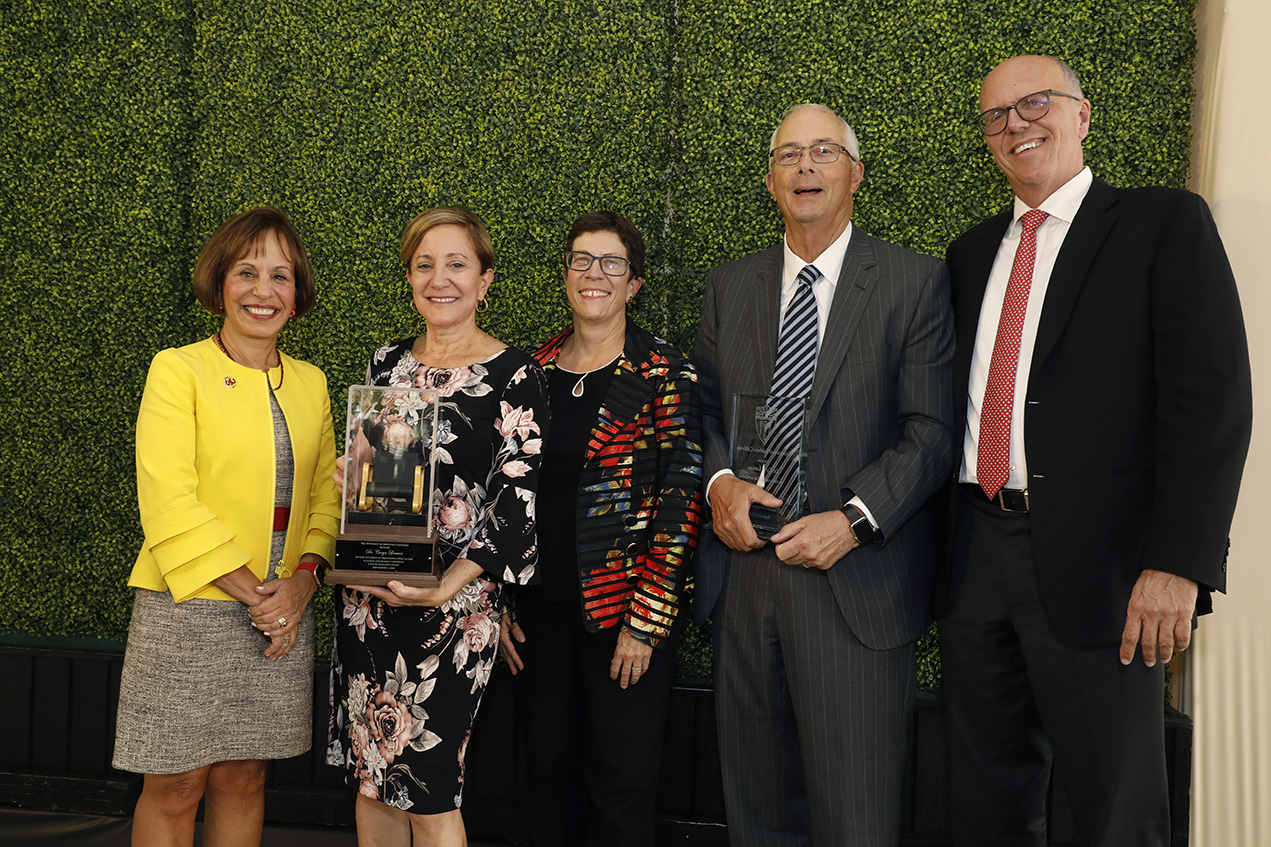On a sunny, late summer afternoon, Caryn Lerman, PhD, took the stage on the Broad Lawn with a new job: director of the USC Norris Comprehensive Cancer Center.
“I feel privileged to be here as the director of USC Norris, one of the very best cancer centers in the world,” Lerman told the audience. “Every day when I walk through the doors of USC Norris and I see our patients and families, I’m reminded of how critical every day and every moment is.”
Lerman, who joined the Keck School of Medicine of USC in March, was celebrated Sept. 11 on the Health Sciences Campus, where she was formally installed as the H. Leslie and Elaine S. Hoffman Cancer Research Chair. She was presented with a model of the chair by USC President Carol L. Folt, PhD, Keck Medicine of USC CEO Tom Jackiewicz, MPH, Keck School Dean Laura Mosqueda, MD, and USC Trustee Kris Popovich, MBA.
“Dr. Caryn Lerman’s work saves lives,” Folt said. “And she does it with compassion, with dedication and intellect. Every day, she makes a difference — not just here at USC Norris, but throughout our university, Los Angeles and the world.”
Mosqueda said Lerman was an easy choice to lead the cancer center. “It was, frankly, one of the more boring searches that we’ve had here for a major position: everyone who met her immediately said, ‘That’s the one! Get her,’ so there wasn’t much of a need for conversation, let alone controversy, in who we wanted to lead our efforts in the cancer arena.”
Lerman expressed gratitude for the support of the Hoffman family, whose daughter, the late Jane Popovich, harnessed their passion into lasting philanthropy for cancer research. She also thanked the Kenneth T. and Eileen L. Norris Foundation for its decades of visionary generosity and leadership, and the Norris family for its partnership and friendship.
She also is no stranger to life as a Trojan: Lerman received her PhD at USC. Lerman spoke of leveraging talent across USC’s dynamic campus to lead the nation in next-generation precision oncology.
“Most treatments for cancer use a drug-centric model,” she explained. “If you have a specific type of cancer, a particular drug is selected to treat that cancer. And if that drug doesn’t work, then another drug is tried and then another.”
But at USC Norris, the patient, not the drug, is the center of care, Lerman said. “The treatments we provide will be targeted not only to the type of cancer, but to the specific molecules in the tumor, to the patient’s own genetic makeup, to their environmental exposures captured on wearable devices, to their lifestyle, their immune profiles, and so on”.
“Leveraging data science, we will integrate these sources of data into powerful predictive models which enable faster and more accurate diagnoses, and delivery of the right treatment to the right patient at the right time,” she added. “This is the full package.”
— Katharine Gammon


